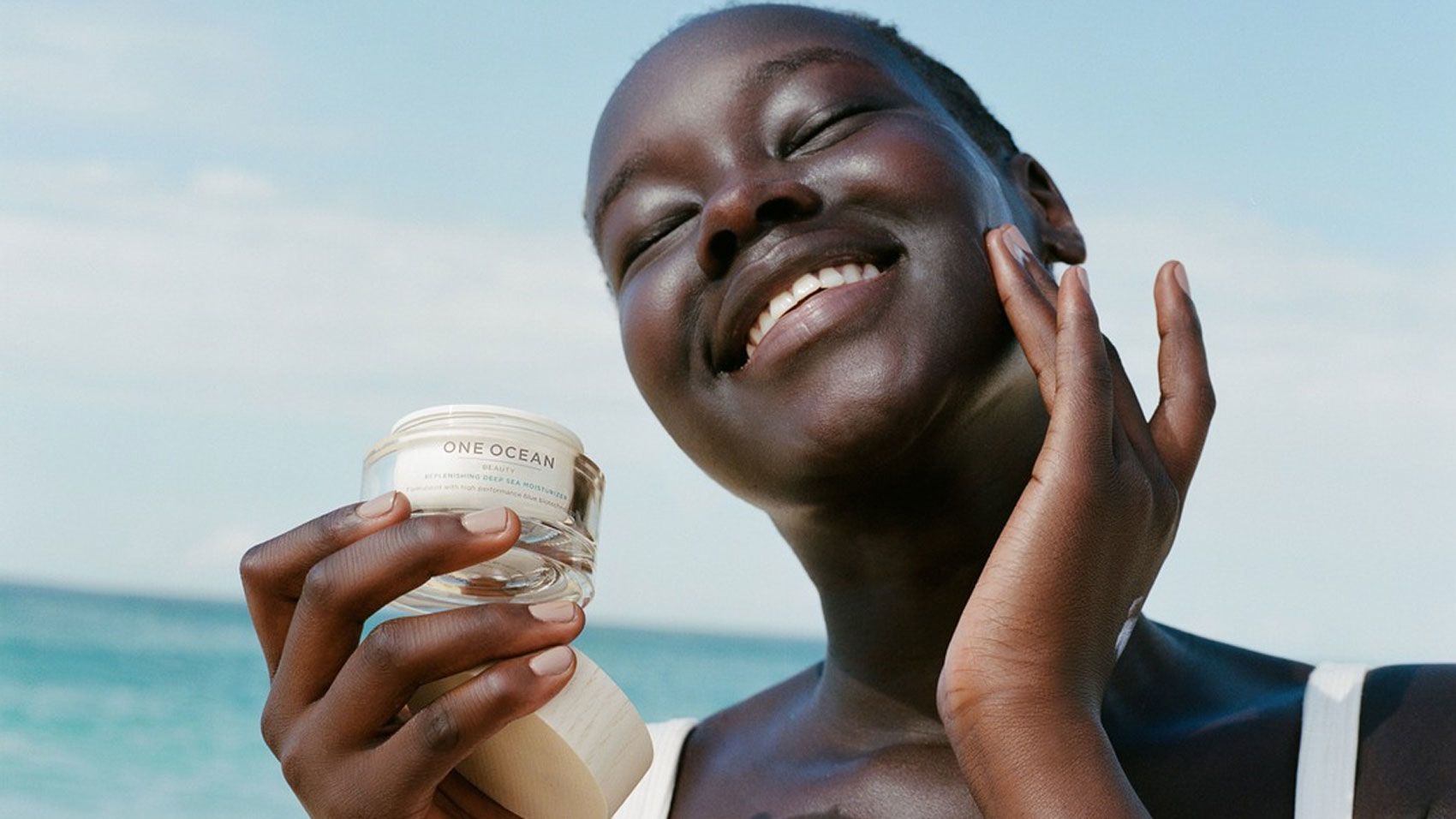Table of Contents
This article is a part of CNN Underscored’s Earth Week, a weeklong focus on our planet and ways to celebrate and preserve it. We’ll be featuring tips on how to live more sustainably, products to help you spend more time in nature and exclusive deals all week, so check in every morning to see what’s new, and be sure to subscribe to the CNN Underscored newsletter to see it all.
If you’ve shopped for any beauty product recently, from lipstick to shampoo, you’ve likely seen labels that call out certain products as “clean beauty.” But what does “clean beauty” really mean? Is it the same as “green beauty”? Are the products organic or natural? And what are the benefits of having a “clean” beauty ritual, anyway?
While the term “clean beauty” isn’t new, its definition is largely subjective for individual brands and ever-evolving in the beauty industry at large. Understanding the benefits of shopping for clean and green beauty items can be confusing, especially because beauty products are regulated — but not technically “approved” — by the Food and Drug Administration (FDA). According to the FDA, “The law does not require cosmetic products and ingredients … to have FDA approval before they go on the market.”
And that makes it tricky to understand what “clean” beauty products really are. “The US Food and Drug Administration has failed to define ‘clean’ and ‘natural’ beauty, leaving these labels open to interpretation by non-dermatologists and retailers who have set out to define clean beauty for themselves,” says New York dermatologist Dr. Anne Chapas, founder and medical director of Union Square Laser Dermatology and clinical dermatology instructor at the Mount Sinai Medical Center.
“Clean beauty” has become a major selling point in the market, with retailers like Credo Beauty and The Detox Market centering around the category, and industry giants Sephora and Ulta creating dedicated sections on their websites for brands that meet specific clean beauty guidelines established by the stores. And while it may seem like a catchall term for products that don’t do any harm to you or the planet, clean beauty is often susceptible to “greenwashing,” where companies use misleading marketing to make it seem like their products are natural when they may not actually be organic, sustainable or ethically made. Here’s what you need to know.
Defining clean beauty vs. green beauty
These terms have lacked a clear definition because green is often equated with natural, and natural is associated with clean, but as the industry has evolved, so has the understanding of clean versus green. At the most basic level, clean beauty products generally do not include potentially toxic and harmful ingredients, including parabens, which some research suggests may be carcinogenic and hormone disrupters, and formaldehyde, a known carcinogen. Green, or sustainable, beauty, however, puts a focus on eco-friendly production, from where ingredients are sourced to packaging that can be kept out of the environment. Clean beauty and green beauty often overlap, but not always, which is why conscious consumers should look carefully at the claims being made.
“‘Clean beauty’ and ‘green beauty’ often mean different things to different brands and companies, and, yes, sometimes it is a misleading marketing tactic,” Kypris founder Chase Polan says. As someone who launched a clean skin care brand over 10 years ago, Polan has seen how the clean beauty space has evolved from “very niche, very craft and largely viewed as less effective” to one of the industry’s most valuable sectors with nature-driven, clinically tested formulas.
“Now the clean beauty aisle is notably more beautiful and polished, with more effective products than 10 years ago, and mainstream consumers are becoming increasingly intrigued and trusting,” she says. “Green biotechnology and science have paved the way for green and clean brands to make products that outperform the conventional offerings of yesteryear.”
Especially for people with sensitive skin, clean beauty products can be a game changer. “Products formulated with harsh chemicals, synthetic fragrances, color and plasticizers, which are often added to help makeup and moisturizers adhere to your face longer, can irritate the skin, causing redness, roughness, irritation and breakouts,” says Suzanne LeRoux, founder of One Love Organics, a brand that identifies as “clean.”
Because the clean beauty and green beauty categories are not regulated, it can be difficult to determine which boxes the products actually tick, but there are some things you can look out for.
Brands can pay third-party certification bodies like ECOCERT and EWG to test their products and ensure they are free of chemicals and toxins. “Not only does ECOCERT regulate ingredients, but we must also comply with their sustainability and environmental standards in every aspect of manufacturing — from our equipment to our packaging, recycling program and the cleaning products we use in our facility,” says LeRoux.
B Corp certification is another indicator that a brand is making significant efforts toward creating positive environmental and social impacts through their business, and remaining transparent while doing so. For Kypris, a B Corp-certified brand, Polan looks at sustainability beyond the tangible products. “When assessing sustainability impacts, I consider people, materials and places, because at Kypris we believe sustainability is both an ecological and sociological imperative,” the founder says.
“Beyond sustainable packaging, every single relationship and element that is touched or moved to create a product is an opportunity for a sustainable or regenerative practice,” Polan continues. “Purchasing ingredients from sustainable and regenerative sources where land and its inhabitants are cared for and people are treated well and paid fairly; shipping ingredients and components in a conscientious, carbon-minimizing manner (which has been really tricky during Covid with logistics options being extra complicated); and producing the product in a sustainable way (meaning the lab pays a living wage and operates with healthy employment practices, uses clean energy like solar or wind when possible and fosters an environment of community and caring).”
The push toward eco-friendly practices in tandem with clean beauty ingredients is also being championed by retailers. Sephora, which launched its Clean at Sephora curation in 2018, added the Clean + Planet Positive category in July 2021. This label encompasses brands that meet its Clean standards and also commit to using environmentally responsible packaging, follow cruelty-free sustainable sourcing, donate at least 1% of profit to a high-impact charity and meet at least one of these climate goals: carbon-neutral operations, reduced greenhouse gas emissions or 100% renewable energy-powered corporate office and owned or leased operations.
This year, Target launched Target Zero, an online and in-store initiative that features products that will help you reduce waste by using recyclable or refillable packaging, are made from recycled materials or have reusable elements that extend the products’ life cycle. The retailer also has the Target Clean edit of beauty, personal care and more products that avoid potentially harmful ingredients.
At any retailer, conscious shoppers can also look for the Leaping Bunny certification for cruelty-free products, USDA Organic seal for products that utilize qualifying organic agricultural ingredients and the Climate Neutral symbol for brands committed to offsetting carbon emissions.
To help you explore your options, we’ve rounded up 16 of our favorite clean and green beauty brands and spoke to the founders making transparent formulations and sustainability pillars of their businesses.
Clean and green beauty brands to shop
Farmacy
Farmacy is committed to making earth-conscious decisions, from its recyclable packaging to its ethically produced skin care. What sets it apart from other clean beauty brands is its approach to sustainability that accounts for people and the planet. “We continue to work with farms and suppliers across the globe to source our key ingredients and support farming communities, and we’re incredibly committed to helping fight food insecurity by partnering with Feeding America and Second Harvest,” Farmacy CEO Mina Chae says. “This goes hand in hand with tapping into utilizing the food industry’s unused materials that would have normally been wasted. More importantly, it minimizes Farmacy’s footprint in the environment and contributes to a more circular economy, enhances efficiency — and is planet-positive.”
Beautycounter
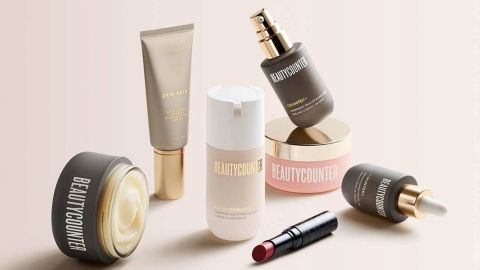
A B Corp-certified skin care and makeup brand looking to make lasting change, Beautycounter has worked with US lawmakers since 2013 to pass legislation around the safety of product ingredients. The clean beauty brand is also working toward sustainable solutions, launching a refillable blush and deodorant last year and aiming to have all packaging recycled, recyclable, refillable, reused or compostable by 2025.
Susanne Kaufmann
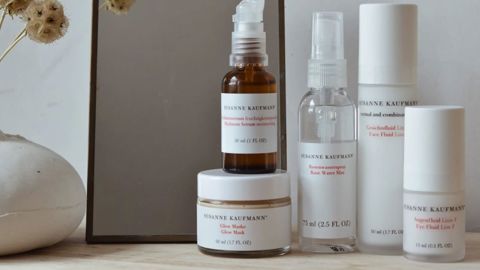
“The term ‘clean beauty’ often refers to high-quality, natural and effective ingredients free from any harmful substances. However, for us, ‘clean’ goes much further than this,” Susanne Kaufmann says. “Like sustainable beauty, ‘clean’ beauty should also encompass environmentally friendly production, sustainable packaging innovation, manufacturing processes and a deep respect for nature and people.” For her namesake brand, plant-powered ingredients from her home region in the Austrian Alpine mountains of Bregenzerwald are made into nourishing skin and body care products through sustainable production and packaging practices.
Tata Harper
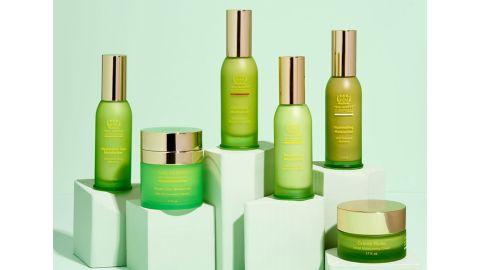
Setting out to make natural skin care that feels luxurious, Tata Harper’s beauty brand focuses on the quality of its clean ingredients. Sourcing from around the globe, the formulations are packed with high-performing, nontoxic ingredients verified by ECOCERT, PETA and the American Vegetarian Association.
Evolvetogether
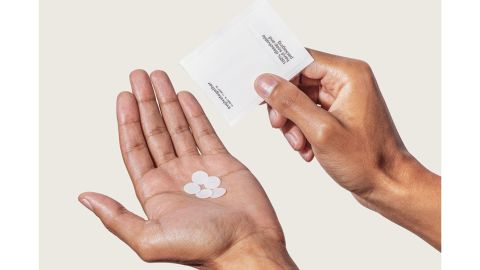
Personal care brand Evolvetogether became known for its celebrity-approved, disposable face masks during the Covid-19 pandemic, and it also sells a number of clean products, such as lip balm and natural deodorant, that are just as essential. Its upcoming release, the Gone Today Collection, features zero-waste products that come in 100% dissolvable packaging and waterless formulas. “We think about sustainability pretty simply: make better choices every chance we get,” founder Cynthia Sakai says. “From partnering with socially and environmentally responsible factories to making biodegradable, recyclable or dissolvable products with postconsumer recycled materials to minimize landfill waste, we’re finding meaningful ways to do good today — and do better tomorrow.”
Kypris
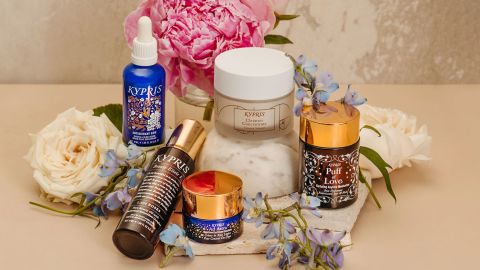
Kypris’ botanical skin care has something for every skin type. At the root of its effective and nourishing products is not only a sustainable approach but a regenerative one. “There is an opportunity for brands to expand beyond sustainability and support regenerative efforts and practices,” founder Chase Polan says. “As a general framework, sustainable choices are ones that do not harm people or a place; regenerative choices are ones that have a net positive impact to people, the environment and living beings — even microbiota!”
Saie
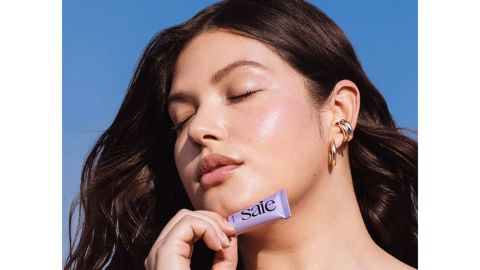
Saie’s eco-conscious makeup offers all the must-haves — from glowy highlighters to maximizing mascara — for a fresh-faced beauty look. The brand is Climate Neutral certified, Plastic Negative certified and Leaping Bunny certified, it’s a member of the Carbon Neutral Club and it supports ocean conservation by donating profits through 1% for the Planet.
Farmaesthetics
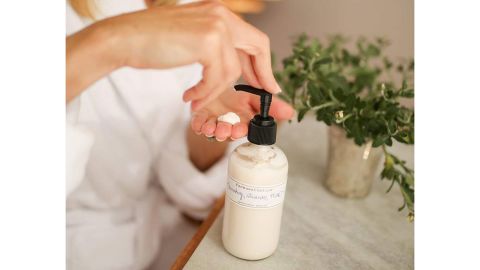
This small-batch, herbal skin care brand started at founder Brenda Brock’s organic farmstand in 1999. Today, it’s known for its effective, natural formulations made from ethically sourced and harvested ingredients. Throughout her journey as a beauty brand owner, Brock has kept sustainability top of mind. “It is not just one action taken or one ingredient added to a product that makes a brand or product sustainable,” Brock says. “Sustainability is the implementation of choices that are made toward green, clean, nontoxic, natural, organic, socially just — all of it, every day, as the grounded center of every decision.”
Rahua
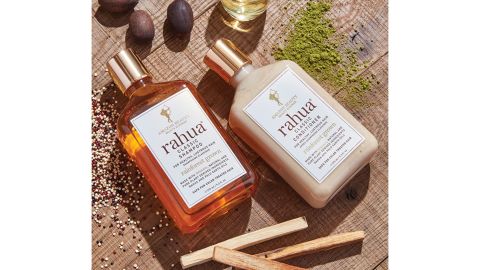
Named after precious rahua oil from the Amazon rainforest, environmentalism is at the heart of Rahua’s ethos. The nourishing ingredient is found in the hair care brand’s shampoo, conditioner and other hair treatments. Founders and partners Fabian Lliguin and Anna Ayers honor this through helping native communities protect the Amazon rainforest, and they also support other environmental efforts like preserving the Galapagos coastal area.
One Love Organics
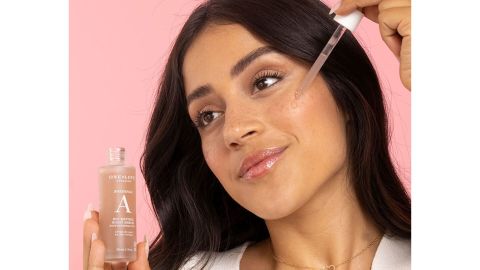
One Love Organics’ face and body products prove that simple formulas are sometimes the best ones. Vitamins and antioxidants from clean, natural ingredients help defend and protect the skin, while the products’ recyclable packaging is kinder on the planet.
RMS Beauty
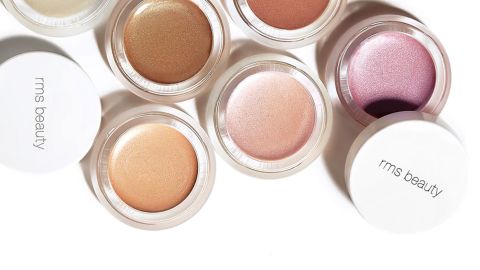
Celebrity makeup artist Rose-Marie Swift created RMS Beauty as an alternative to the chemical-filled cosmetics she encountered working in the fashion and beauty industries for over 30 years. The brand’s formulas focus on “living ingredients,” such as rosehip oil and jojoba oil, which RMS Beauty defines as “raw, food grade, organic, wildcrafted and natural ingredients.”
Weleda
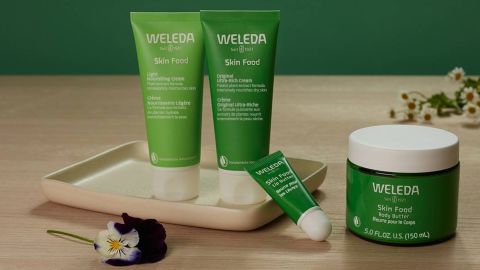
We often think about what natural ingredients can do for us, and now Weleda is examining what we can do for the soil that helps grow those elements. With its Save Earth’s Skin mission, the 100-year-old B Corp-certified beauty and wellness brand aims to bring awareness to maintaining healthy, biodiverse soil across the globe that can continue to grow the food and ingredients that we need to thrive.
The 7 Virtues
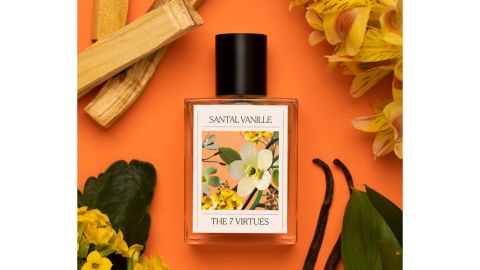
Since 2010, The 7 Virtues has been making clean, sustainably sourced fragrances committed to making social change. From supporting the local communities where ingredients are sourced in the Middle East and Africa to partnering with organizations like Days for Girls, the brand is using beauty and fragrance as a platform to connect us and educate about global issues.
Ilia
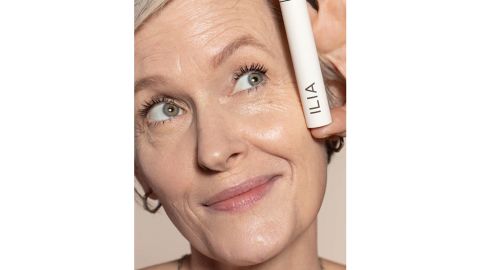
From making recycling empties easier to partnering with One Tree Planted with the goal of planting 1 million trees by the end of 2023, Ilia is working toward a greener future. The makeup brand is also taking a transparent stance to clean beauty, owning that not all natural ingredients benefit the skin and not every synthetic ingredient harms it.
One Ocean Beauty
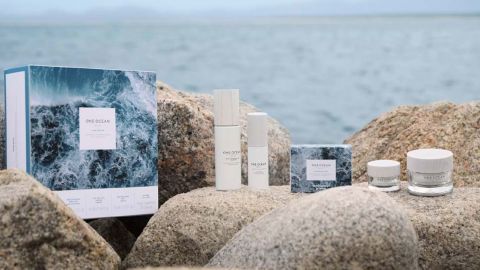
One Ocean Beauty’s skin and body care products feature marine ingredients from around the world. Through its partnership with Oceana, the brand is helping protect the world’s oceans from pollution and destructive fishing practices. A direct contribution from every One Ocean Beauty purchase made goes to Oceana, helping the preservation and protection of the earth’s largest ecosystem. We love the Bioactive Body Sculpting Marine Cream.
Well People
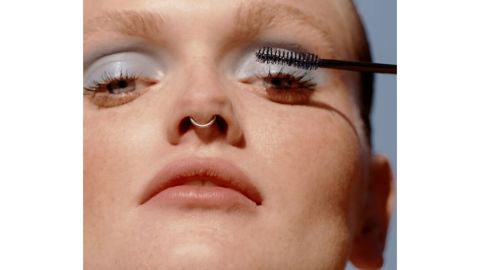
Makeup packed with ethically sourced and renewable, botanical ingredients is Well People’s specialty. Its EWG-verified products are also dermatologist-approved, so you know it’s serious about being clean. Well People works with fair trade facilities to source ingredients and utilizes sustainably minded packaging made from post-recycled materials when possible.
https://www.cnn.com/cnn-underscored/beauty/clean-beauty-vs-green-beauty
 fashion rec fashion wanted
fashion rec fashion wanted
